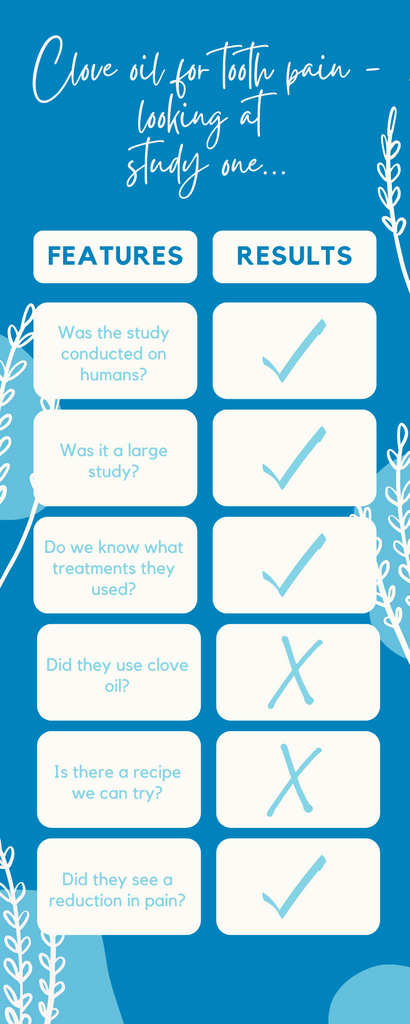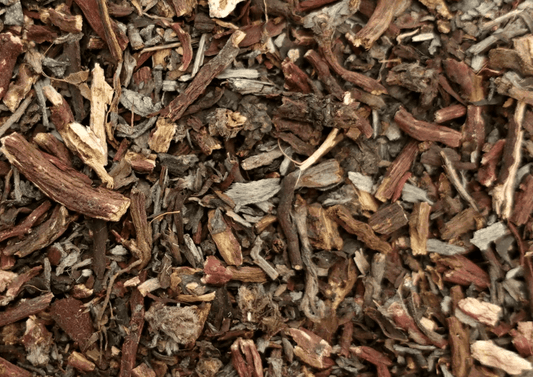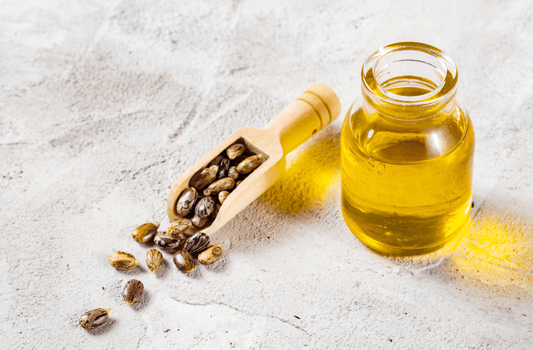Tooth ache- once suffered, never forgotten! It really is miserable and we know the feeling of desperately trying to ease the pain, you’ll try anything.
You’ve no doubt heard that clove oil can help with tooth pain, but will it work? Let’s have a look at the claims and the evidence…
Contents
- What are the claims made for clove oil and toothaches?
- What's the evidence? The first study
- The second study
- Conclusion
What are the claims behind clove oil for toothache?
Clove oil has a long history as a natural remedy to relieve pain. Dr J Valnet, one of the world's most prominent aromatherapy experts, lists clove oil as a treatment for toothache in his 1982 book: The Practice of Aromatherapy. [1]
In 1990, Valerie Worwood, a highly accomplished aromatherapist, recommends "1 drop of clove oil on a cotton bud and apply it to the gum around the tooth". [2]
We definitely wouldn't recommend using clove oil without diluting it. More on that later...
She goes on to recommend this treatment for tooth pain: "Massage the jaw bone and cheek with:
- 1 drop clove oil
- 3 drops chamomile oil
- 1 drop lemon oil
- Diluted in 5ml of carrier oil"
In 1995, the accomplished scientist Dr. Lis-Balchin mentions that "clove bud oil ... [is] used in dentistry as a local anaesthetic for toothache". [3]
So those are the claims behind clove oil for toothache, but is there any evidence that clove oil works?
The 2015 study
This British study was done on 270 humans having their third molar extracted (ouch!), which is a fairly decent sized group and also used a control group.
The first group had a 0.2% chlorhexidine gel applied to the area after extraction. The second group had a eugenol based paste (eugenol is the active ingredient in clove oil) applied to the affected area after extraction. The third (control) group had no treatment following extraction (poor souls!). They were all then monitored for 7 days for postoperative pain, inflammation, infection, and wound healing.
Out of the three groups the ones that used the eugenol based gel were concluded to have the best wound healing, less instances of alveolar osteitis and less pain, inflammation, and infection.
Key takeaway: Although this study didn’t use clove oil it did use its active ingredient, eugenol. The evidence shows that eugenol was the most successful after molar removal.
They didn't give a recipe for their eugenol based paste though, so it would be impossible to make at home.
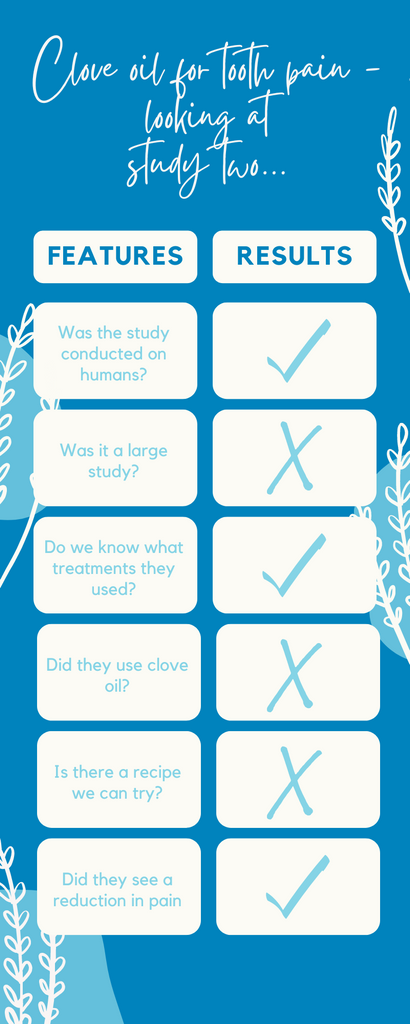
The 2006 study
This study looked at whether a homemade clove gel could work as well as 20% benzocaine gel which is a local anaesthetic. They made the clove paste by mixing ground cloves with glycerin.
This was a smaller group than the other study, at 73 participants, and they used the gels before each patient had a needle stick so they each had the same level of pain.
The results showed that both the homemade clove gel and the benzocaine gel both significantly reduced pain levels compared to the placebo group who had no pain relief (is anyone else feeling sorry for these placebo groups in these studies!?).
There was no significant difference in pain reduction between the two gels which concludes that the homemade clove gel was as effective as the benzocaine gel.
However, 4 of the people who had the clove paste treatment also developed ulcers, which is a hazard of using clove oil for toothache.
Key takeaway: This was a small study that had positive results, but importantly they didn't use clove oil.
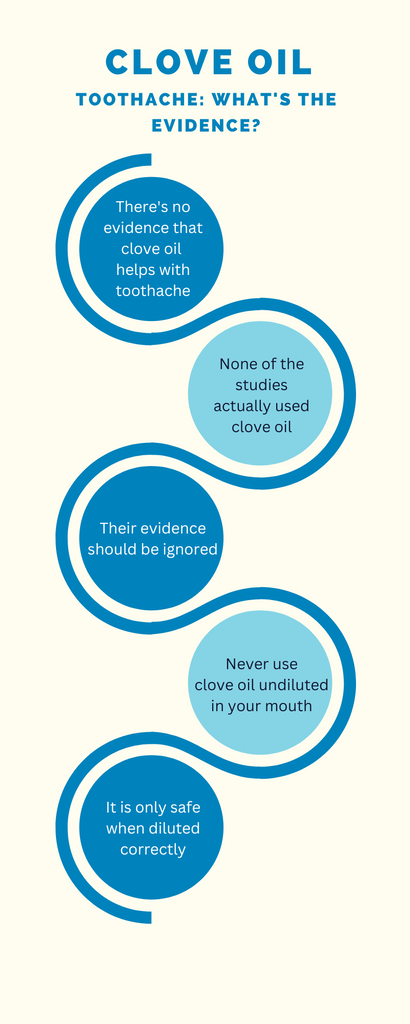
Conclusion
Both studies had positive results, but importantly, they didn't test clove oil. They tested different types of clove treatments, but we can't use them as evidence that clove oil helps with tooth ache.
These studies are widely used online to "prove" that clove oil helps with toothache, but the evidence doesn't stand up to scrutiny.
How could clove oil work on tooth pain?
Clove oil contains an active ingredient called eugenol, which has natural anaesthetic properties and can be anti-inflammatory. It is plausible that this could help to numb and reduce pesky tooth pain whilst also helping to reduce gum inflammation.
However, there's no evidence that clove oil can really help.
How to use clove oil for tooth pain
If you do choose to buy clove oil for your toothache, always dilute it in a carrier oil. There are at least 3 cases of serious poisoning from ingesting clove oil.
Never apply clove oil directly to your mouth, and ignore anyone who says it's a good idea.
- Dilute 1g of clove essential oil in 200g of a carrier oil (olive oil, coconut oil etc).
- Apply a few drops to a cotton ball in the oil mixture and then rub around the affected tooth for a few minutes.
- This can be reapplied every 2-3 hours.
- Always consult a dentist if you experience tooth pain, clove oil is only to provide temporary relief.
Continue reading
Now that you've learned about using clove oil for toothaches, why not continue learning about other natural remedies?
- Interested in more essential oils? Read whether rosemary oil is good for hair growth
- Learn about our clove essential oil with our clove oil sustainability blog!
- Heard the rumours that ginger oil can help with weight loss? Find out more!
- Want to know how to use essential oils around the house? Try our room spray recipe
Sources
[1] The Practice of Aromatherapy Dr J Valnet 1982 p114
[2] The Fragrant Pharmacy Valerie Worwood 1990 p46
[3] The Chemistry & Bioactivity of Essential Oils Dr. M. Lis-Balchin 1995 p45

